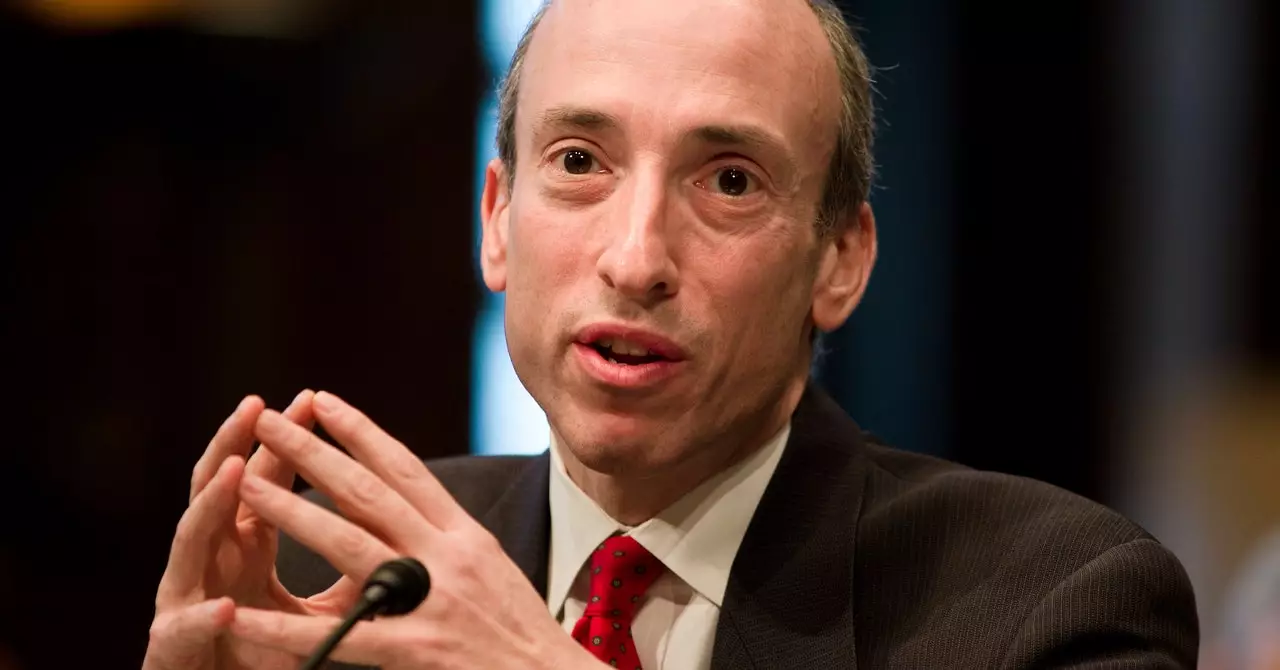The recent surge of interest surrounding cryptocurrency in American politics has culminated in a noteworthy embrace by former President Donald Trump during his campaign trail. With promises that could reshape the regulatory landscape of the crypto industry, Trump’s approach has garnered significant attention and excitement within the sector.
At a Bitcoin conference in Nashville, Tennessee, Trump made headlines by vowing to fire Gary Gensler, the current chair of the Securities and Exchange Commission (SEC), if he regains the presidency. This announcement was met with a thunderous applause from attendees, reflecting a palpable dissatisfaction with Gensler’s regulatory actions within the cryptocurrency sphere. “I will appoint an SEC chair who will build the future, not block the future,” Trump assured, signaling a clear pivot towards a more crypto-friendly regulatory environment intended to spur innovation rather than stifle it. Ironically, Gensler’s impending resignation, coinciding with the anticipated inauguration of Trump, exemplifies the profound tensions between regulatory bodies and the burgeoning crypto sector.
Trump’s broader agenda includes an ambitious vision to position the United States as a leader in Bitcoin mining—a sector he frequently punctuates with grand proclamations. He has vowed to create a national bitcoin stockpile along with a regulatory framework to support stablecoin enterprises. These propositions resonate deeply with industry stakeholders who have long desired a more conducive environment for crypto development. During a meeting at Mar-a-Lago with executives from the bitcoin mining industry, former officials like Brian Morgenstern reported on Trump’s deep engagement and interest in the crypto landscape, indicating a potentially transformative approach to economic policy that could elevate the industry’s status.
It’s not just political rhetoric; Trump has begun to intertwine his campaign with cryptocurrency on a more personal level. His campaign’s acceptance of crypto donations and the establishment of a crypto platform by his sons reflect a noteworthy shift toward monetary innovation within his political apparatus. Additionally, the trademark filing for a crypto payment service by Truth Social, one of Trump’s ventures, showcases a blend of business and politics intimately tied to cryptocurrency—a move that could further legitimize digital currencies in mainstream finance.
The crypto community is beginning to see its interests represented within the potential Trump administration. Key appointments are indicating a clear alignment with pro-crypto sentiments. Howard Lutnick, nominated for Secretary of Commerce, is at the helm of Cantor Fitzgerald, a firm associated with Tether—the world’s largest stablecoin. This trend continues with several other nominated officials, including vice president-elect JD Vance and health nominee Robert F. Kennedy Jr., who have expressed favorable views on cryptocurrency. This wave of appointments is not merely cosmetic; it signals a desire for deeper engagement with the crypto economy at a federal level.
The market’s reaction to Trump’s election win and its implications for the crypto industry has been swift and favorable. Bitcoin prices have soared, reaching unprecedented levels just shy of $100,000 per coin. Industry experts like Morgenstern have observed a revitalized optimism within the sector as hopes rise for a more favorable regulatory environment. The collective sentiment points towards a belief that the crypto industry will soon enjoy improved prospects ostensibly fueled by Trump’s proposed policies.
As the political landscape shifts with Trump’s resurgence, the cryptocurrency industry stands at a crucial juncture, filled with potential for dramatic reform. Whether these promises translate into concrete policy changes will be pivotal in defining the future of cryptocurrency in the United States. The interplay between political leadership and financial innovation could create a dynamic that reshapes not only the regulatory framework but also how cryptocurrencies are perceived and utilized in everyday commerce. As stakeholders continue to observe and engage with the new administration, the unfolding narrative will shape the trajectory of the crypto market and its role in the global economy.

